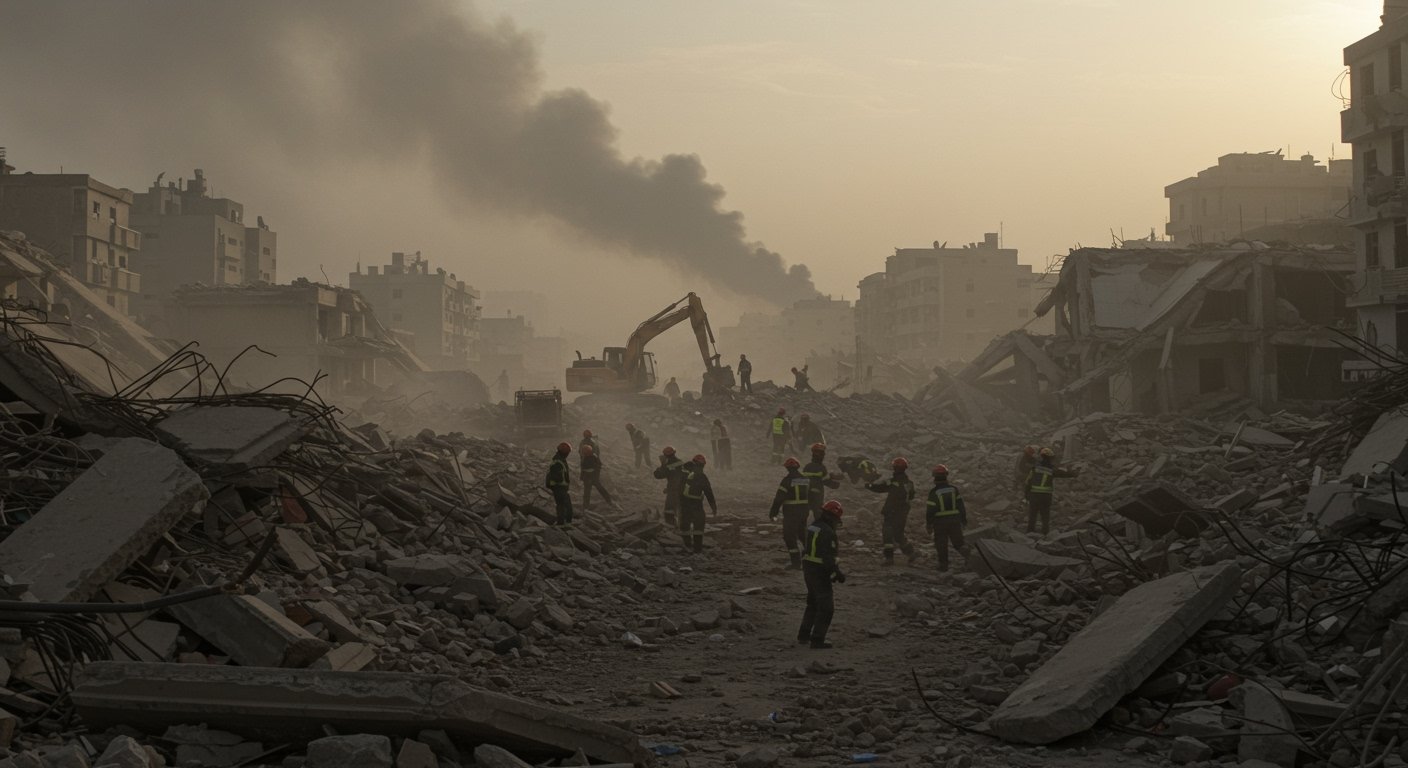Israel’s Security Cabinet has officially approved a comprehensive plan that will see the nation assume military control over the entirety of the Gaza Strip. The decision, announced via a statement, marks a significant escalation in the ongoing conflict and signals a new phase of Israeli military objectives in the region. Prime Minister Benjamin Netanyahu articulated the government’s intentions, stating that Israel aims to occupy the territory, systematically dismantle Hamas, establish a robust security perimeter, and subsequently delegate governance to select Arab nations deemed ‘friendly’. This strategic shift, however, has immediately ignited serious concerns from international observers and humanitarian organizations regarding the potential safety of Palestinian civilians and the precarious situation of Israeli hostages still held within Gaza.
Objectives Outlined: Occupation, Demolition, and New Governance
Prime Minister Netanyahu’s remarks following the Security Cabinet’s approval laid out a clear, albeit ambitious, roadmap for Israel’s post-conflict vision for Gaza. The primary objective, as stated, is the complete military occupation of the territory. This phase is to be accompanied by a resolute campaign to ‘eliminate Hamas’ from its operational and political structures. Following these military actions, Israel intends to implement a ‘security perimeter’ designed to prevent future incursions and attacks. Critically, the plan outlines a future governance model that relies on the involvement of ‘friendly Arab nations.’ This specific detail suggests an effort by the Israeli government to secure international legitimacy and operational stability for the territory after its military objectives are met, though the identities of these potential governing Arab states have not been disclosed.
Escalating Humanitarian Crisis and Hostage Fears Dominate Discussion
The unfolding war in Gaza has already exacted a devastating toll, with tens of thousands of Palestinian lives lost. The humanitarian crisis has reached catastrophic levels, marked by widespread displacement, destruction of infrastructure, and severe shortages of essential resources. Among the most alarming statistics emerging from the conflict zone is the critical health status of children. It has been reported that 12,000 children are currently suffering from acute malnutrition, highlighting the profound impact of the prolonged hostilities on the most vulnerable population. Compounding these grim realities are the ongoing fears for the safety and well-being of Israeli hostages. The continued presence of these individuals in Gaza, under the control of militant groups, remains a paramount concern for Israel and a significant factor influencing its military and political strategies. Warnings have been issued from various quarters about the potential risks to both Palestinian lives and these Israeli hostages that could arise from the execution of the newly approved plan.
Global Implications and International Scrutiny
The Israeli Security Cabinet’s decision to pursue full military control over Gaza is poised to have significant global repercussions and will undoubtedly face intense international scrutiny. The broad objectives, particularly the stated intention of occupation and the reliance on unspecified Arab partners for future governance, raise numerous questions about regional stability and long-term diplomatic solutions. The escalating humanitarian crisis, with its devastating impact on civilian populations, including the alarming rates of child malnutrition, places immense pressure on all parties to de-escalate and prioritize the protection of non-combatants. As the world watches the developments in Gaza, the focus remains on how these military objectives will be balanced against the urgent need for humanitarian aid and the safe release of all hostages. The top news from the region continues to be dominated by the complexities and severe consequences of this protracted conflict, with implications for the entire world.
Path Forward: Uncertainty and Urgent Calls for De-escalation
The approved plan sets Israel on a path toward a prolonged military engagement and occupation of Gaza, with a complex vision for its future governance. The success of these objectives, as well as the mitigation of the severe humanitarian consequences and the safe return of hostages, remains uncertain. International bodies and humanitarian organizations continue to issue urgent calls for de-escalation, adherence to international law, and the protection of civilian lives. The coming weeks and months will be critical in determining the trajectory of the conflict and its impact on the people of Gaza and the broader Middle East. The world is keenly observing the top developments as Israel embarks on this new, decisive phase of its military operation in the Gaza Strip, a situation that continues to be a leading news item globally.









